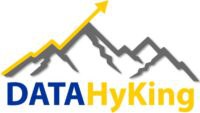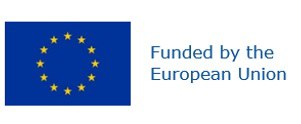DATAHYKING - Data-driven simulation, uncertainty quantification and optimization for hyperbolic and kinetic models
 Europe faces major challenges in science, society and industry, induced by the complexity of our dynamically evolving world. To tackle these challenges, mathematical models and computer simulations are indispensable, for instance to design and optimize systems using virtual prototypes. Moreover, while the big data revolution provides additional possibilities, it is currently unclear how to optimally combine simulation results with observation data into a digital. Many systems of interest consist of large numbers of particles with highly non-trivial interaction (e.g., fine dust in pollution, vehicles in mobility).
Europe faces major challenges in science, society and industry, induced by the complexity of our dynamically evolving world. To tackle these challenges, mathematical models and computer simulations are indispensable, for instance to design and optimize systems using virtual prototypes. Moreover, while the big data revolution provides additional possibilities, it is currently unclear how to optimally combine simulation results with observation data into a digital. Many systems of interest consist of large numbers of particles with highly non-trivial interaction (e.g., fine dust in pollution, vehicles in mobility).
However, to date, computer simulation of such systems is usually done with highly approximate (macroscopic) models to reduce computational complexity. Facing these challenges without sacrificing the complexity of the underlying particle interactions requires a fundamentally new type of scientist that uses an interdisciplinary approach and a solid mathematical underpinning. Hence, we aim at training a new generation of modeling and simulation experts to develop virtual experimentation tools and workflows that can reliably and efficiently exploit the potential of mathematical modeling and simulation of interacting particle systems.
To this end, we create a data-driven simulation framework for kinetic models of interacting particle systems, and define a common methodology for these future modeling and simulation experts. The network focuses on (i) reliable and efficient simulation; (ii) robust consensus-based optimisation, also for machine learning; (iii) multifidelity methodes for uncertainty quantification and Bayesian inference; and (iv) applications in fluid flow, traffic flow, and finance, also in collaboration with industry. Moreover, the proposed EJD program will create a closely connected new generation of highly demanded European scientists, and initiate long-term partnerships to exploit synergy between academic and industrial partners.
Project details
Scientific responsability: Lorenzo Pareschi
Funding source: HORIZON EUROPE
Call: HORIZON-MSCA-2021-DN-01
Start date 01/03/2023 - end date 28/02/2027
Total cost: 3.465.345,60 €
EU contribution: 3.465.345,60 €
EU contribution to UniFe: 518.875,20 €
Participants
- Katholieke Universiteit Leuven, Belgium - Coordinator
- Università degli Studi di Ferrara, Italy
- Università degli Studi di Roma La Sapienza, Italy
- Technische Universitat Kaiserslautern, Germany
- Rheinisch-Westfaelische Technische Hochschule Aachen, Germany
- Institut National de Recherche en Informatique et Automatique, France
- Universite de Lille, France
- Universite Cote d'Azur, France
- Centre de Recherche en Aeronautique Asbl – Cenaero, Belgium
- Incico, Italy
- Cassa di Compensazione e Garanzia S.P.A., Italy
- Zensor, Belgium
- Autovie Venete S.P.A., Italy
- Neovya Mobility by Technology, France
- Transport & Mobility Leuven Nv, Belgium
- Esi Group, France
- Siemens Industry Software Netherlands Bv, Netherlands

